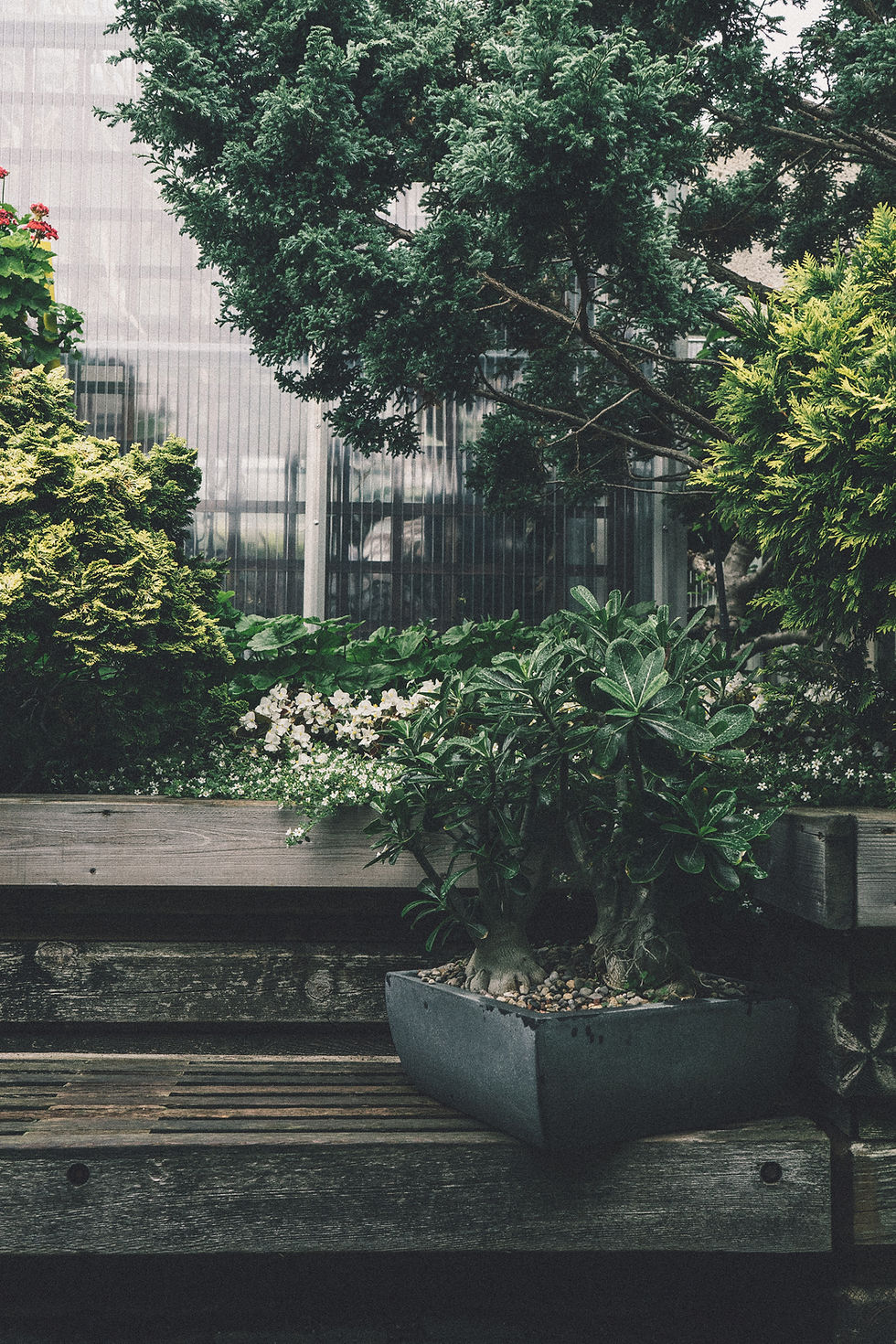
We all need to start thinking about our impact on the environment, from our carbon footprint to the clothes we wear, everything makes a difference. Something that can be forgotten in the bigger world view is our small open spaces of our own gardens and outside areas. So how can we make these spaces a haven for creatures and encourage bees and other pollinators to move in? Here are some useful tips to begin your rewilding journey.

Let your lawn grow wild
Take a break from mowing your lawn (or a small area of it) to encourage the growth of nectar-rich plants, such as clover. These plants provide a vital food source for pollinators and can make a beautiful feature too. Feeling adventurous? Add wildflower plug plants or lay an area of wildflower turf for a really wild look that'll attract a greater variety of pollinating insects.

Relax about weeding
Take a more relaxed approach to weeding and allow selected weeds such as teasel and deadnettle to grow among your planting. This is an easy way to increase the diversity of plants in your garden and welcome native plant species, supplying wildlife with extra nectar, pollen and seedheads, while giving your garden a relaxed and romantic feel.

Give wildlife a home
Bug hotels are a fantastic way to provide shelter for a whole range of insects, while piles of sticks also offer a simple home for small mammals. Use material kept back from pruning your trees and shrubs, arranging the pile as a sculptural focal point among your planting or as a decorative mulch around trees.

Feed the birds
Enhance your garden’s wildlife appeal with a well-stocked bird table or feeder. The wider the range of foods on offer – such as the dried fruit and nuts in the picture – the wider the range of feathered friends that will come calling. This addition can add a stylish feature to your garden space, as well as support our native bird populations. Remember that birds are natural predators of insect pests as well.

Connect with your neighbours
Start a conversation with your neighbours about what you could do together to support our wildlife. Open up your garden boundaries to create corridors for wildlife and share the responsibility of providing food, shelter and habitats to help preserve our endangered species. When considering garden boundaries, remember that hedges are much more wildlife friendly than fences, especially the type with rigid gravel boards that prevent creatures moving from one garden to another.
By following these simple tips you can start rewilding your outside space in no time at all!
About Us: Orchidale Children's Nursery is based in a fantastic converted bungalow building in Taverham, 15 minutes from Norwich with childcare places for 2 months-5 year olds. We can offer your child fabulous fun filled days of activities to help children learn and make lots of new friends. We have a fabulous outdoor space with so many area's of learning. Including a separate 0-2's garden, forest school space, large lawn for the children to run around on and so much more! Please come and see us, our beautiful learning area's and our magical garden. If you are searching for a Day Nursery in Norwich, Norfolk then we are the Children's Nursery that goes the extra mile for you and your children. Visit the Orchidale Nursery website at: www.orchidale.co.uk
#rewilding#rewildyourgarden#wild#nature#garden#outdoor
#ChildrensNurseryRingland#ChildrensNurseryCostessey#ChildrensNurseryThorpeMarriott#ChildrensNurseryHorsford#ChildrensNurseryDrayton#ChildrensNurseryTaverham#ChildrensNurseryAylsham#ChildrensNurseryFelthorpe#ChildrensNurseryQueensHills#ChildrensNurseryHorshamStFaith#ChildrensNurseryBawburgh#ChildrensNurseryAttlebridge#DayNurseryNorwich#DayNurseryRingland#DayNurseryCostessey#DayNurseryThorpeMarriott#DayNurseryHorsford#DayNurseryDrayton#DayNurseryTaverham#DayNurseryAylsham#DayNurseryFelthorpe#DayNurseryQueensHills#DayNurseryHorshamStFaith#DayNurseryBawburgh#DayNurseryAttlebridge

Comments